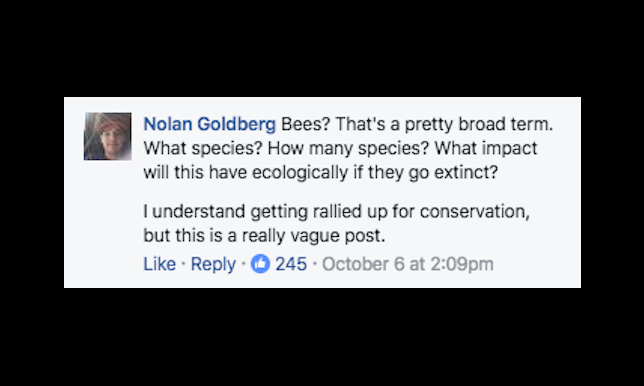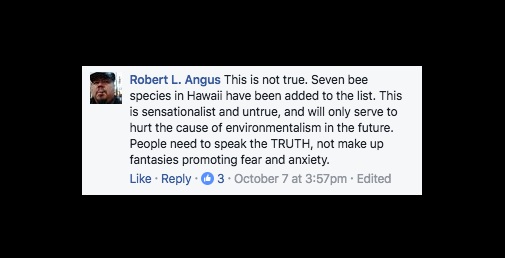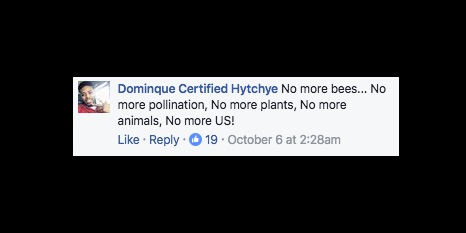By Emilie Quesnel [8]
BELLEVILLE – Social media exploded with alarm after a rumour began circulating that all bees are officially on the endangered species list, but local beekeepers helped put the gossip to rest.
The rumours started cirulating after the United States Fish and Wildlife Service [9] made an announcement last month classifying seven species of Hawaiian bees as endangered in North America. As a class of insect, bees are not on their way out. However, some misconstrued the announcement and took to social media with their concerns.
https://twitter.com/osamakimladen/status/785188473657495552
Bees—crucial to our food supply—have been placed on endangered species list for the first time. #GiveBeesAChance [10] https://t.co/NVigcQPXUf [11]
— Dr. Jill Stein🌻 (@DrJillStein) October 14, 2016 [12]
https://twitter.com/David_henkee/status/786938250921447425
To put the concerns into context, there are over 20,000 species of bees – 800 of which can be found in Canada. According to Canada’s public registry [13] of species that are at risk, only two of these 800 species have been classified as endangered, the Rusty-Patched Bumble Bee [13] and the Gypsy Cuckoo Bumble Bee [14].
Julie White, the owner of Long Point Honey [15] in Prince Edward County, said people are worried for the wrong reason.
“Honey bees are a different type of bee in that they’re managed by beekeepers. They aren’t really in danger like the wild bees are,” she said.
It’s not that honey bees aren’t being threatened too, she explained, but they’re managed differently and live in much bigger colonies, meaning they aren’t in danger of extinction. White explained that wild bees – like the seven Hawaiian species – are a lot less stable due to their solitary nature.
Liz Corbett of the Quinte Beekeepers’ Association [16] agrees. “This does not affect our local area at all,” she said.
White explained that Prince Edward County is especially dedicated to the health and stability of agriculture.
“A lot of people in the county are concerned with pesticides. On the whole, the county is really committed to the environment,” she said, explaining that this area has twice as many organic farming initiatives than most other counties.
Corbett said we should still be conscientious and concerned.
“Pollinators in general need protection and there are many ways that landowners and homeowners can help,” Corbett said.
Things as simple as planting wildflowers, avoiding pesticides and leaving a small portion of your lawn un-mowed can make a difference.
“We’re going to see increasing problems with insects unless we’re able to significantly reduce pesticide use,” White explained. “In some ways I’m hopeful, other ways I’m concerned.”
According to the Canadian Wildlife Federation [17], two-thirds of the crops we eat rely on pollination from insects like bees. Without proper pollination, crops such as apples, coffee, and almonds won’t grow.
With files from Brendan Burke [18].






